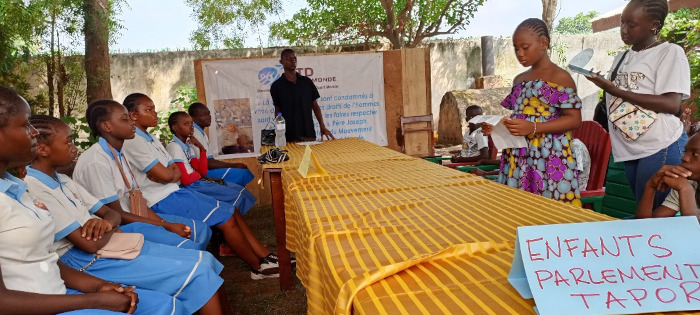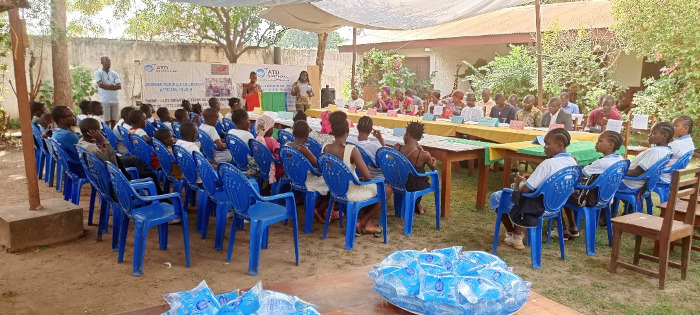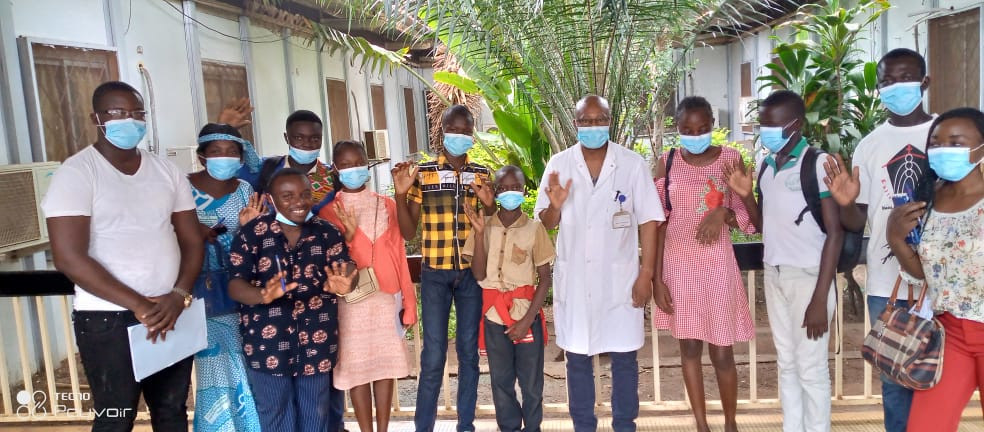The Unexpected Advocates

How Children in Central African Republic’s ‘Parliament’ Are Driving Birth Registration.
![]() Reading time 4 minutes
Reading time 4 minutes
We often talk about community leaders and NGOs driving change. But what if the most effective advocates for a fundamental right—like birth registration—were children themselves?
This is the reality in the Central African Republic, where a unique group of young people, aged 8 to 16, are making a profound difference. Established on November 28, 2020, in Bangui, the Tapori Children’s Parliament is a group of children who advocate for and defend the rights of their most disadvantaged, abused, and victimized peers. Their motto, inspired by Father Joseph Wresisnki, founder of the international Tapori movement, is powerful:
“We want all children to have the same opportunities.”
They are contributing to a world where every child has a place, and no one is left behind.

A Solution to a Critical Challenge
The Central African Republic faces immense challenges, and a critical one is low birth registration rates. This lack of a legal identity document can exclude children from essential services like healthcare, education, and protection. Instead of being passive recipients of aid, these young people have been empowered as active agents of change. Through the “Children’s Parliament,” they are trained not just on their rights, but on how to become effective communicators and community organizers.
These children parliamentarians don’t just attend meetings; they go back to their own neighbourhoods. They visit families, speak to parents, and even engage local elders and authorities. Their message is simple but compelling: “Having a birth certificate is the key to our future.”
Wilibona Herman, a young parliamentarian, understands this struggle firsthand. “Most street children do not have birth certificates, and they often request them,” he explains. “I believe that their birth certificates would enable us to identify them.” He shares his own story of being separated from his parents during a conflict and losing all his documents. “I have no papers, not even a birth certificate,” he said. “My parents were unable to register my birth.” Thanks to the Voix du Coeur Foundation, he was able to obtain his birth certificate and is now in Year 5 at Lakouanga School.
Wilibona’s personal victory fuels his advocacy. “I am proud to have my birth certificate, and now I am honoured to be counted among other school going children,” he said. He continues to campaign so that all children can have access to their rights, especially the right to a birth certificate. “Many prominent figures in this country and around the world have birth certificates, and I believe that decision-makers, governments and states should take an interest in children who find themselves in a situation like mine,” he urged
This approach to birth registration advocacy is effective due to several key factors that leverage the unique position of children as advocates.
- Elevated Trust and Reduced Distrust: When children advocate to their peers and their parents, they often sidestep the inherent distrust that can hinder adult-led campaigns. Their approach is perceived as more genuine and less intimidating, opening doors that might otherwise be closed.
- Inherent Authenticity: The children’s message is rooted in their own lived experiences. It is not a theoretical concept; it’s a personal plea. This authenticity makes their message highly relatable and powerful, as they advocate with a genuine desire for their friends and peers to share the same opportunities.
- Effective Moral influence: It’s fundamentally difficult for an adult to ignore a child who is politely yet firmly explaining the importance of a birth certificate. This dynamic shifts the responsibility from an external organization to the individual adult, inspiring a strong sense of moral obligation to act on the children’s behalf.
This model of youth/children-led advocacy highlights that empowering children to solve community challenges is not just a moral good, but a highly effective and strategic approach.

The Broader Lesson
This initiative in Central African Republic offers a profound lesson for development professionals and policymakers worldwide. It’s a powerful reminder that:
- Empowerment is not just a buzzword; it’s a strategy.
- Solutions to society’s most complex problems can come from the most unexpected places.
- Children are not just passive recipients of aid; they are powerful agents of change.

